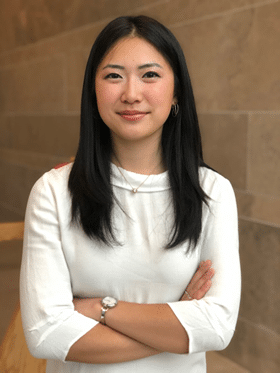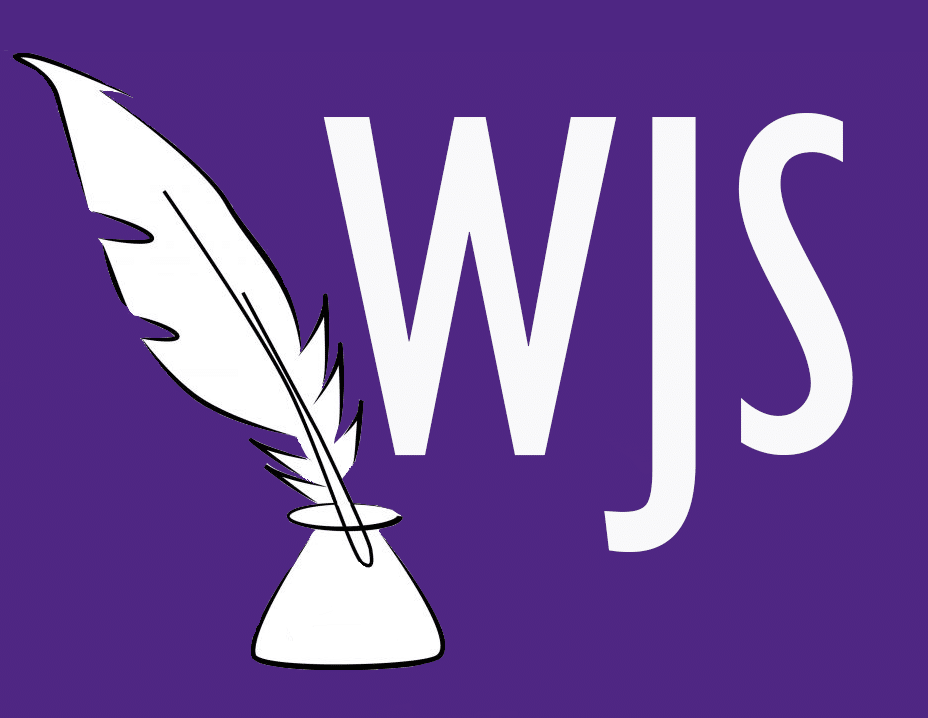By Vicky Qiao —
“It pretty much blew up overnight”
When the creator of Ivey at the Margins launched the account on Instagram, she expected a handful of personal stories.
In less than one day, the account received more than 100 submissions.
“It pretty much blew up overnight,” said the student behind the account, who didn’t want to be identified for this story.
Inspired by other Instagram accounts that amplify the voices of minority students at post-secondary institutions, @Iveyatthemargins is meant to be a platform for students and alumni of Western University’s Ivey Business School. Contributors have been sharing their experiences involving discrimination and systemic injustices.
“I absolutely did not expect this many stories to have come out,” the account creator said. “I think when you’re going through the HBA (Honors of Business Administration) program, and this is something other marginalized people can attest to, it feels like you’re isolated in the specific experiences.”
One of the biggest impacts of the account is allowing people to know they’re not the only one who has experienced these incidents, she said.
“I think it’s both validating to know that this wasn’t your fault, you didn’t deserve anything that happened to you. Also, that there’s a bigger community supporting you and that you’re not alone in any of this.”
The campaign comes amid ongoing anti-racism activism accelerated by protests against anti-Black racism in the wake of the killing of George Floyd, a Black man who died in May after a white police officer kneeled on his neck for nearly nine minutes. Floyd’s police-involved death sparked protests across North America, most organized by Black Lives Matter.
The Black Lives Matter movement has sparked calls for defunding the police as well as an end to systemic and institutionalized racism against Black Indigenous and People of Colour (BIPOC) in schools, and other public institutions.
And it has spread awareness about the existence and impact of systemic racism at the institutional level. Last month, after releasing a report that found nearly 40 per cent of undergraduate BIPOC students experienced racism, Western University’s president appointed a special advisor to lead anti-racism efforts on campus.
Feedback to @iveyatthemargins has been overwhelmingly positive, the organizer said. “There’s been such a supportive community just commenting on the posts, offering resources, offering their shoulders and their ears to listen and just being willing to help out.”
But going through all the responses and posting them, she said, can be a draining process for a one-person team. “You’re just getting a constant stream of these really negative stories and it doesn’t really feel like you can take a break from them.”
“The frog in boiling water”
It feels different reading these posts about racist and sexist incidents now compared to experiencing them in school, said Angela He, an Ivey HBA/MIT dual degree student, Class of 2020.
She didn’t contribute to the account because she didn’t think of any substantial story, said He. But she described feeling like a ‘frog in boiling water’ during her time at Ivey.
“Whenever you put a frog into warm water and if you slowly cook the frog, then the frog won’t realize what’s happened and will get cooked alive,” she explained.
She doesn’t see herself as a victim of systemic racism and discrimination, but more as a bystander like many of her peers, said He.

“There is this hegemony and this ideology that’s already in place of a fratty culture that just jokes and laughs at the expense of others,” she said. “And you kind of just go along there and try and not be at the butt end of the jokes too much.”
This notion of passive conformity resonates with many Ivey students, including Jenny Zhang, who is pursuing a dual degree in Ivey HBA/Medical Science at Western.
“When you’re in a larger group with your peers and your friends, it might be hard to say something just because you feel out of place or you don’t want to ruin the mood,” she said.
There was a general undertone of ignorance in a lot of the comments and jokes, said Angela He, and they would often go unaddressed when expressed as part of the class contribution.
“Professors generally will encourage whatever you say. So this just opens the door for voicing your opinion and ignorance,” she said.
“Ivey is not perfect”
“Ivey is not perfect. Students who go there are aware of that,” said a graduate from Ivey HBA Class of 2019 who decided to stay anonymous.
The Ivey HBA program is designed to train students in a workplace setting. Students are expected to treat their professors and peers as colleagues in the business world.
But this special feature feeds into the problem when it comes to injustices, she said. “Because of this, when a lot of these issues come up with students… they [professors] kind of go like ‘oh, that’s life.’”
Although the program operates as a professional environment, she said there needs to be adequate resources to support students.
“For people who will complain about it, obviously they’re going to speak up,” she said. “And if they don’t get the correct response, why would they speak up in the future? Why would they speak up in the workplace?”
These concerns are shared by Jenny Zhang. She said she worries that without proper education on equity and respect, these issues will be carried into the workplace.
Zhang recalled her finance class at the beginning of the school year. “It sort of implied that… women are very underrepresented in finance, and we were like, okay—we never talked about it again.”
Not every student of colour relates strongly to the account. Carl Zhou, a current HBA student, said he hasn’t experienced any of these incidents.
“I think it depends on the friends you make,” he said. “All my friends are really open-minded. We do make a lot of jokes, but at the end of the day, we’re all friends.”
Zhou said he doesn’t resonate with most of the issues highlighted by the posts but has heard similar experiences from other sections.
“Regardless, this is a great platform,” he said, “I think it really allows you to share your voices that should be heard. But at the same time, maybe some of the stories are baseless.”
But it is important for the school to teach more about diversity and inclusion, said Zhou. “In the business world, you’re going to be communicating with diverse people.”
“Bullying survives and thrives in the darkness”
Craig Dunbar wasn’t active on Instagram until the past weekend.
The associate professor at Ivey Business School said he heard about @iveyatthemargins from one of his students and his daughter studying in the States.
“It was pretty heartbreaking [to read the] testimonials, some of which were very familiar,” Dunbar said. “Very familiar but also certainly not something you want.”

Many of the posts shared on the account talk about the gender-based inequality and aggression within the finance sector. As a finance professor, Dunbar said he is aware of some of the challenges and there is a core group of the faculty that is trying to help.
“I generally believe that bullying survives and thrives in the darkness,” he said.
“I’m not claiming to have the answers here. The more people are sharing their experiences, having somebody like a professor that they can trust to bring things to you, only then can we really step in and try to make positive changes.”
Looking forward
For many who have been following the account, the important question is: what’s next?
The person behind the account said she didn’t think a lot about the specific steps when they first started the initiative, and the administration at Ivey has not yet reached out to her.
“The most I have gotten are some DMs from student leadership at Ivey—they haven’t necessarily been the most constructive,” she said. “And they’re not really focused on making substantial levels of change.”
In response to questions from Western Journalism Studio about this story, an official with Ivey Business School said the administration is working on a plan.
“Over the last few weeks, we have been collaborating with members of our BIPOC (Black Indigenous People of Colour) community on an action plan to improve diversity and inclusion at Ivey,” wrote Ivan Langrish, Associate Director of Media Strategy at Ivey Business School, in an email response.
“We also recognize that recent conversations such as those on @iveyatthemargins have brought forward past traumas and unresolved discriminatory experiences.”
The statement also said that Ivey will release an update on the action items soon. Western Journalism Studio will be following the administration’s future plan and specific steps.
The @Iveyathemargins account creator said she’s optimistic but isn’t sure what the next steps will look like. “I’m not a trained eye or expert, so I don’t want to say to the community what the next step should be in terms of diversity… I think the community has a lot of really valuable ideas.”
Jenny Zhang suggested an anonymous feedback system. She said the existing resource isn’t always accessible when it comes to reporting incidents.
“Because some things people are not comfortable saying to their profs or to their VP Ally face-to-face, or they don’t want to be singled out,” Zhang said. “If there’s a review by the professor or higher up and they have to read this and be forced to confront it.”
The administration needs to re-evaluate the admission criteria and commit to diversifying the students, said Angela He. “The fact that there are only, what, five or six black students in a class of over six hundred is crazy.”
In Ivey’s annual review, it shows the statistics around class diversity in terms of countries of citizenship, birth countries and languages spoken. However, the report doesn’t keep a breakdown of racial backgrounds.
He also suggested training for professors to properly respond to disrespectful comments made in class. “I don’t agree with necessarily shutting them down. But I do agree with kind of more pushing back and then opening conversation.”
Although Ivey offers some diversity and inclusion curricula, He said it needs to be expanded and made mandatory. She said real change requires institutional effort.
“Ultimately, if super enlightened students come into the school and the curriculum is the same, the administration is not doing anything and professors are still being ignorant, it’s not going to work out,” she said.
“So I think it starts with this system. I think Ivey admin has massive power, like almost the greatest power to change all of this.”

Comments are closed, but trackbacks and pingbacks are open.